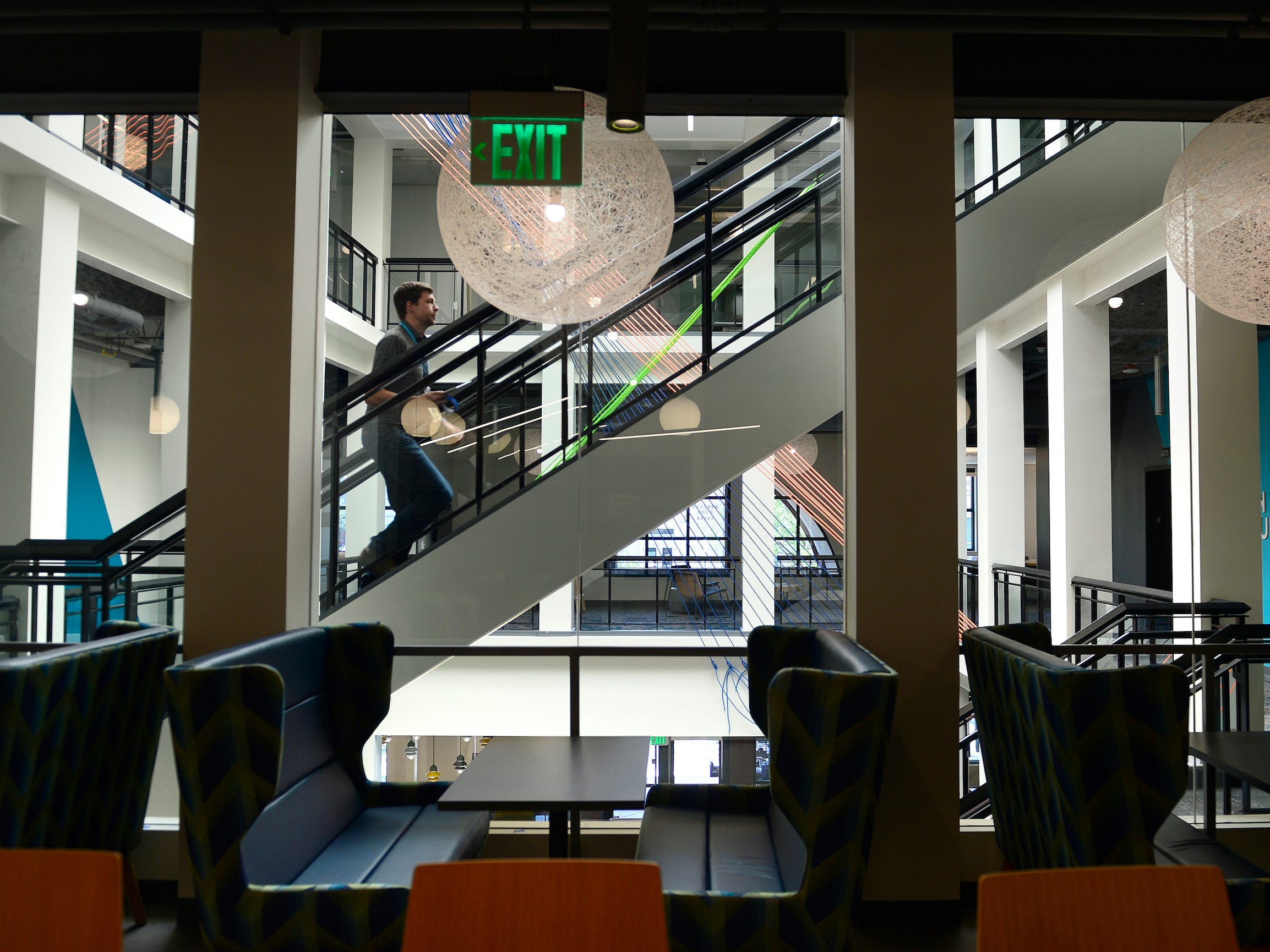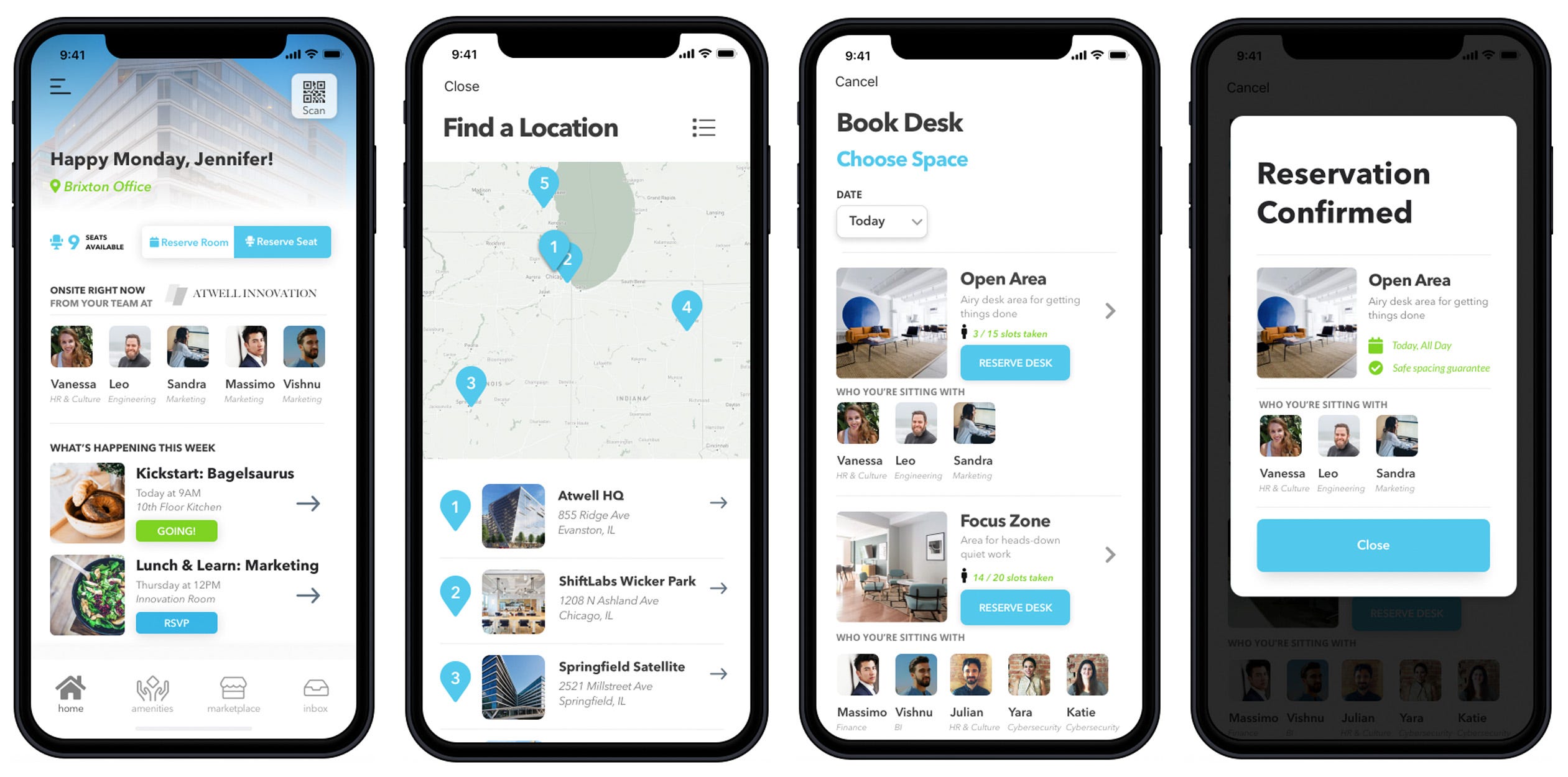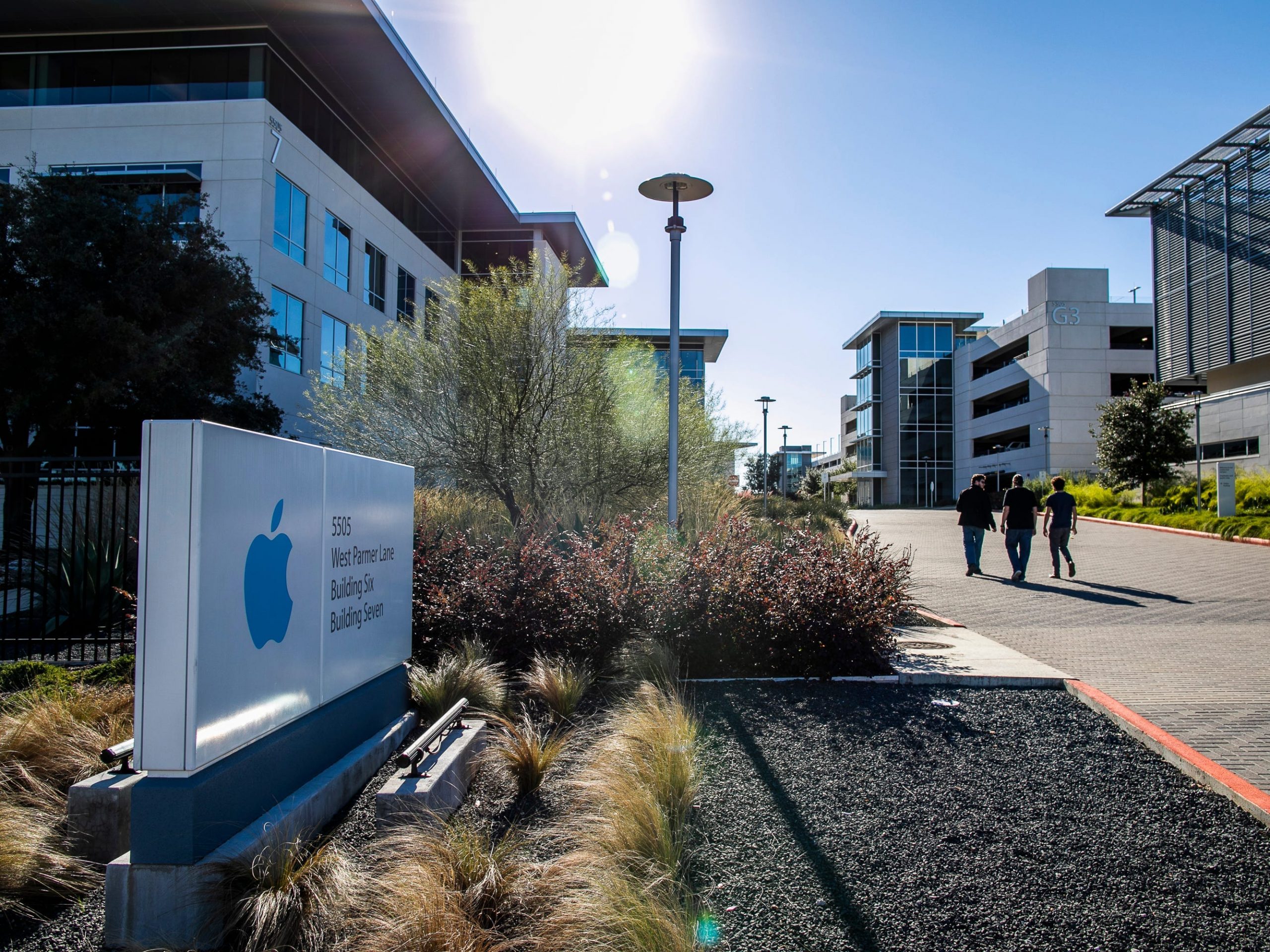
Helen H. Richardson/The Denver Post via Getty Images
- The future of the tech office isn’t clustered in Silicon Valley, experts told Business Insider.
- Instead, tech companies will likely adopt a “hub-and-spoke” model, with satellite offices peppered across the US.
- In a post-coronavirus era, employees may have a “remote-first” work schedule, and commute to a satellite office when they need to from wherever they live.
- Amazon, Apple, and Uber have already started to adopt something similar. Amazon recently announced a $1.4 billion investment in expanding its offices in six US cities outside of Seattle, while Uber and Apple have each made major expansions in Texas.
- This model allows companies to keep the “prestige” of a Bay Area headquarters, but expand their talent pools outside Silicon Valley and save money on labor costs, says one expert.
- This could be good for employees, too: It allows workers to live outside of major cities while still being able to access the perks of an office, like technology or socialization.
- Visit Business Insider’s homepage for more stories.
When will it be safe for tech employees to return to the office? What happens to employees who want to leave Silicon Valley? And what does the future of the office look like?
These are the questions that major tech companies are grappling with as the coronavirus crisis stretches into the fall. Many large tech firms, including giants like Facebook and Google, have pushed back plans to return to the office until summer 2021, and have said they anticipate a rise in remote work.
But experts told Business Insider that the office — and Silicon Valley — will look very different by then. With workers leaving the Bay Area and companies wary to have thousands of employees all in one place, San Francisco may not be the central tech headquarters it’s been for decades.
Instead, the experts say, tech companies are going to expand outward, with small satellite offices peppered throughout the US.
“We’re going to start to see satellite locations rather than singular HQs,” Melissa Hanley, CEO of the Bay Area design firm Blitz, told Business Insider. “We might say, ‘Hey, you don’t have to commute two hours. We’re going to have a little satellite office with all the resources you need out in the ‘burbs.'”

AAron Ontiveroz/The Denver Post via Getty Images
A hub-and-spoke model
Adam Segal, the CEO of workplace management technology company Cove, said he expects most companies will start to adopt a "remote-first approach," meaning that working at home is the norm, not the exception. While workers might have worked remotely one or two days per week in pre-coronavirus times, in the future, that will be reversed, Segal said.
"So what does that mean? You just have less dedicated desks," Segal told Business Insider. "No one misses their desk — that's not why you go to the office. You miss people, the socialization."
Segal agrees with Hanley that the future of the office will be a so-called "hub-and-spoke" model: Companies would have a "hub," or headquarters, in a major city, then have "spokes" anywhere in America connected by the same technology system. With Cove's system, for example, you'd be able to look up office locations in your area, see which of your colleagues was working there, and book a desk of your choice for the day.
Google is planning on a future that includes office hubs, according to leaked audio obtained by Business Insider's Hugh Langley. During an October 1 all-hands meeting, Google CEO Sundar Pichai said the company is planning on adding new, smaller hub offices, which will give employees more flexibility around where they live.
"In the future when we think about it, we do see the majority of Googlers' roles will continue to be tied to a particular office and that they will live within some reasonable distance of that office," Pichai said during the all-hands. "What we are doing is expanding the number of offices we see as hubs so that people will have a lot more choice in their lives."
Pichai also used the phrase "hybrid-flexible" to describe how Googlers will work going forward, which could mean that employees will have the option to both work remotely and report to the office.
Twitter CEO Jack Dorsey recently hinted at a satellite model for Twitter's workers. Dorsey told "The Boardroom: Out of Office" podcast host Rich Kleiman that he's been working on "decentralizing" Twitter's workforce, and that many entrepreneurs he talks to aren't interested in a big San Francisco headquarters anymore. "Here we are, an internet company, that's completely centralizing in San Francisco," Dorsey said. "We're not living up to the ideals of what the internet inspired us to be and what it can show."
Companies like Amazon are already starting to meet employees where they are. The company recently announced a $1.4 billion investment to expand its physical offices in six cities across the US: Dallas, Detroit, Denver, New York, Phoenix, and San Diego. It's also hiring 3,500 new employees, but not at its main headquarters in Seattle — these workers will report into those hubs spread across the US.
Tracy Brower, a sociologist and principal in the applied research and consulting group at furniture manufacturer Steelcase, said she's already hearing from clients who are mulling a switch to satellite offices, in part because they would save on real estate costs in major cities.
But she also sees benefits for employees. For one, satellite offices may be safer; workers wouldn't have to worry about commuting in crowded downtowns or trying to socially distance in the elevator of a high-rise building.
There would also be an improvement in quality of life. "Satellites are really more convenient," Brower told Business Insider, arguing that they give workers more choice in how they work. "I might come to a satellite for great technology that my company offers, and I don't have the same thing at home."
For workers sick of staying at home or feeling creatively stuck without the ability to easily work with others, a satellite office could satisfy some of those feelings, Brower said. "A lot of times, the reason we want to get together is for new ideas, for new thinking, to be stimulated by the people around us."

Cove
Bay Area vs. anywhere else
Satellite offices aren't a new concept. In the era after 9/11, for example, the banking industry went the route of satellite offices, setting up hubs outside of lower Manhattan and New York City.
The coronavirus may have just sped up a trend that was already percolating in the tech industry over the last few years.
John Boyd, a principal at corporate location consultancy The Boyd Company, used Uber as an example. In August 2019, Uber announced plans to build a new hub for 3,000 employees in the Dallas area. The new office is expected to become Uber's largest outside of the Bay Area.
Similarly, in November 2019, Apple broke ground on a brand-new, $1 billion Austin campus that spans 3 million square feet. It's expected to open in 2022 and will house 5,000 employees to start.

Drew Anthony Smith/Getty Images
Boyd says that while companies may keep headquarters in the Bay Area for prestige, lower labor costs also make satellite offices appealing.
"Labor costs in Raleigh, North Carolina, or Tampa, Florida, can be 25 to 30% less than in Palo Alto, California," Boyd said. Moving 4,000 or 5,000 jobs to these markets can mean millions in savings for tech firms.
Tech companies, however, would need to make those satellite offices desirable for people who don't already live there — or who want the lifestyle of places like Palo Alto. "They need to offer the type of lifestyle amenities that Tesla employees in Palo Alto view as favorable or desirable," Boyd said.
Boyd said there wes a slew of cities well-positioned to welcome a tech workforce: Nashville, Raleigh, Tampa, Miami, Austin, Salt Lake City, Las Vegas, and Phoenix.
One thing all the experts agreed on: The office isn't going away, it's just changing.
"I don't think the office is dead, I think that's hyperbole and sort of ridiculous," Hanley of Blitz, the design firm, said. "People need community, people need culture, they need contact, and that will not go away."
The Business Insider Global Trends Festival will take place on the 19th-23rd of October. Join us for a virtual conference of ideas featuring live, on demand content, workshops, and key speakers from around the world. Find out more.

